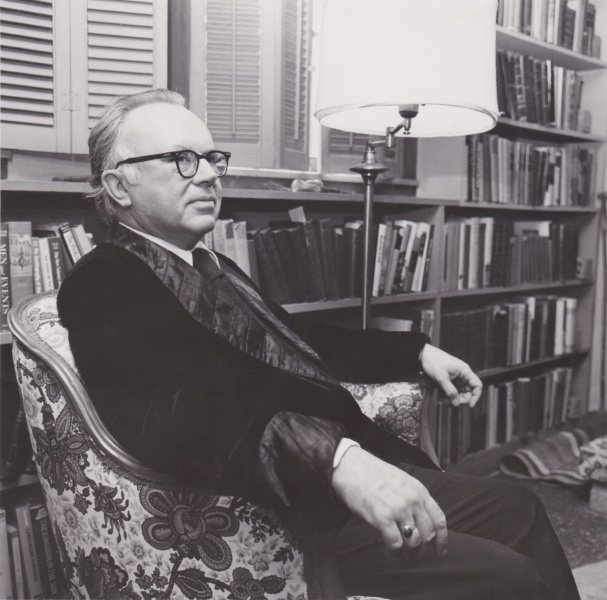In the course of my travels the length and breadth of this land, often I am struck with the innocence of both Protestant and Catholic clergy in matters political and economic. For innocence, read–if you will–ignorance. The seminaries teach next to nothing in these disciplines, and candidates for Holy Orders–with some honorable exceptions–seem to have acquired but scanty information about the civil social order before they begin to proceed to a school of theology.
I certainly do not desire to return our men of the cloth to the illusion of the Social Gospel–now a dying influence. Yet though minister and priest ought not to set up as arbiters of things secular, still they must be concerned with the relationship between religious doctrine and the art of worldly wisdom. For this, some fairly disciplined knowledge of social reality is necessary.
As matters go nowadays, too many clergymen let themselves be ruled by vague social sentiments, which slide into humanitarianism–by definition the negation of a transcendent understanding of the human condition–without recognizing the pit into which they have fallen. Though full of good intentions, they tend to forget what the road to hell is paved with.
Perhaps the best example of this lamentable innocence is the attitude of some–not a few–ministers and priests toward the question of poverty as related to charity and justice. Such gentlemen tend to regard the existence of poverty as the fault of vested interests, or of a negligent government, or of a set of veritable Dives sybarites willfully blind to their stewardship.
While it is possible for poverty to be caused by such influences, this is not generally so in the West of the twentieth century.
Christian orthodoxy looks upon poverty as no evil, but rather as an occasion for virtue, to be rewarded by God. The Bible and the fathers of the church repeatedly speak of poverty–even involuntary poverty–as a blessed state. Correspondingly, the rich man can enter heaven no more easily than a camel may pass through the eye of a needle: That is, the rich have great temptations and heavy responsibilities, and you can’t take it with you.
But, ignoring this teaching, some ministers of the Gospel become unconscious Marxists, considering material want the greatest of evils, and inveighing against every inequality of condition–for which doctrine of material equality, really, there is no warrant in Scripture. They might well read old Sir Thomas Browne, in his Religio Medici:
Statists that labour to contrive a commonwealth without poverty take away the object of our charity; not understanding only the commonwealth of a Christian, but forgetting the prophecy of Christ. [“The poor ye shall have always with you.”]
Christians are strictly enjoined, indeed, to relieve want to the utmost of their ability But the essence of charity lies in its voluntary character.
The further charity is removed from family and locality–the more impersonal charity becomes–the less meritorious it becomes. Collective charity, through the agency of the state–and especially through the agency of a remote centralized state–is both less kind and less virtuous than personal giving. And if this collective charity degenerates into mere taxation of the prosperous for the benefit of the less wealthy, through the votes of the benefiting crowd–why, it ceases to be charity, and becomes first cousin to theft. There is no merit in robbing Peter to pay Paul.
If some clergymen fail to understand charity, a Christian moral concept, it is no wonder they do not understand the concept of justice, more classical than distinctly Christian. Justice consists in giving to each man the things that are his due. To treat all men as if they were identical units, without regard to their deserts and their talents, is profoundly hostile both to the great tradition of our politics and to Christian teaching. Yet there are clergymen whose notion of justice cannot be distinguished from that of Marx, who wrote that “In order to create equality, we must first treat men unequally”–that is, to despoil the able, the energetic, and the possessors of property, in order to benefit the deified masses.
Aside from these concerns of doctrine, such clergymen often speak as if we were living in the Bleak Age, with suffering industrial masses and every eleventh person dying in the workhouse–when, obviously enough, ours is the affluent society. They do not look into the realities of our time, but visit the alleged sins of our nineteenth-century fathers upon our generation.
How many of them have read such penetrating observations as this passage by Professor Glenn Tinder in an essay called “Human Estrangement and the Failure of Political Imagination”?
“The rather indiscriminate fervor of many liberals and socialists for the extension of welfare measures can appear highly ludicrous if one reflects on the degree of welfare which almost everyone already enjoys.”
For that matter, how many preachers have read Mr. T. S. Eliot’s The Idea of a Christian Society? Or any recent serious work that relates Christian doctrines to our present discontents? Some actually take their texts from the most secularistic of weeklies of opinion.
“Poverty, Charity, and Justice” might well be the title of a regular course in most seminaries. This knowledge lacking, the ordained pastor may become a Pharisee.







